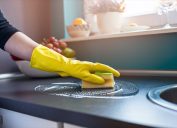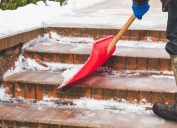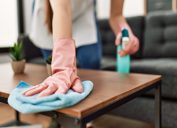21 Ways You're Damaging Your Home, According to Your Handyman
It's time to talk about all of those extension chords.
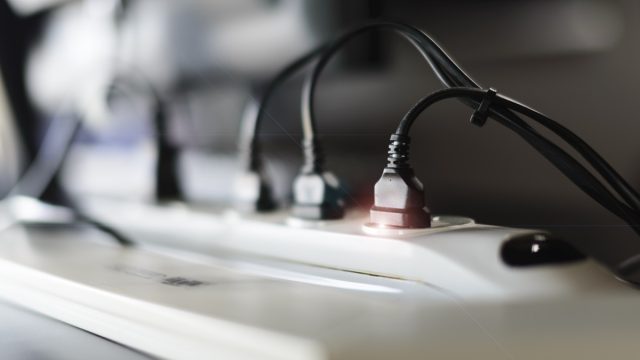
We all love those HGTV shows where the pros take rundown houses and flip them into stunning places any homebuyer would fawn over. But what you don't see is how those properties get so decrepit in the first place. It's usually not one big disaster that turns a home into a hovel, but rather a series of small factors that chip away at a house over time—damaging it in ways the average homeowner may not even realize.
To that end, we've enlisted house flippers, renovation experts, and other handy professionals to provide essential tips on what kind of damage you're unknowingly doing to your precious pad. Here are 21 things every homeowner should avoid doing to keep their place in tip-top shape.
1
Ignoring leaks
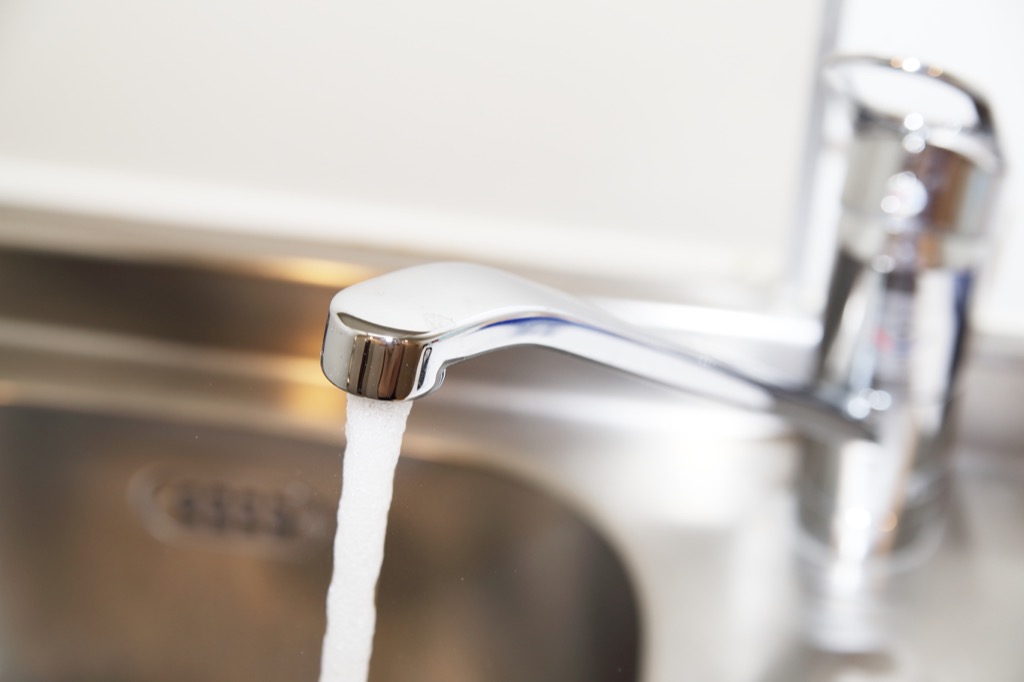
If you're not already diligent about this, you should keep your eyes out for leaks—and then immediately take action when you spot one (even if it's the tiniest drip-drop-drip you've ever seen). What might be just a small dark spot under your sink today could lead to major damage. Home expert Lara Edge described the worst-case scenario for House Logic: "You need a structural repair, plus new cabinets and new kitchen flooring. Or the roof rots, so you need a new roof and repairs to rooms directly beneath."
2
Using the wrong tools
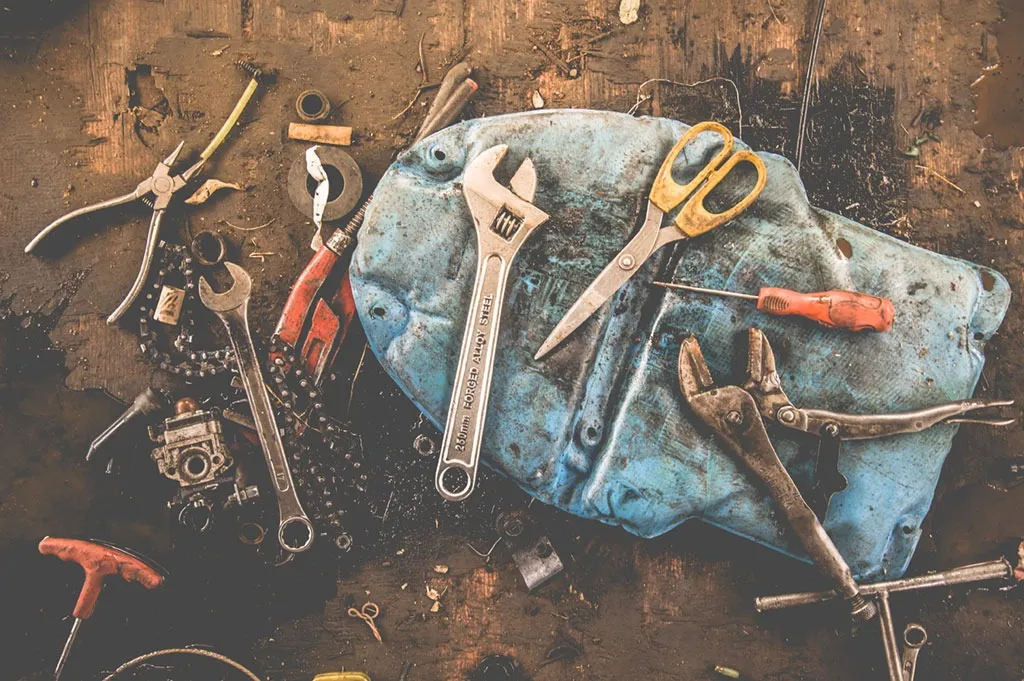
You need to use the right tool for the job. Using a slot head for a Phillips head screw can make a home repair job way worse in the long run.
And not having quality tools is a problem, too. "Buy quality brands [when they're on sale], or buy used tools at a local auction or estate sale," urges Edge. "Then ditch those make-do tools that have always frustrated you."
3
Using the wrong paint
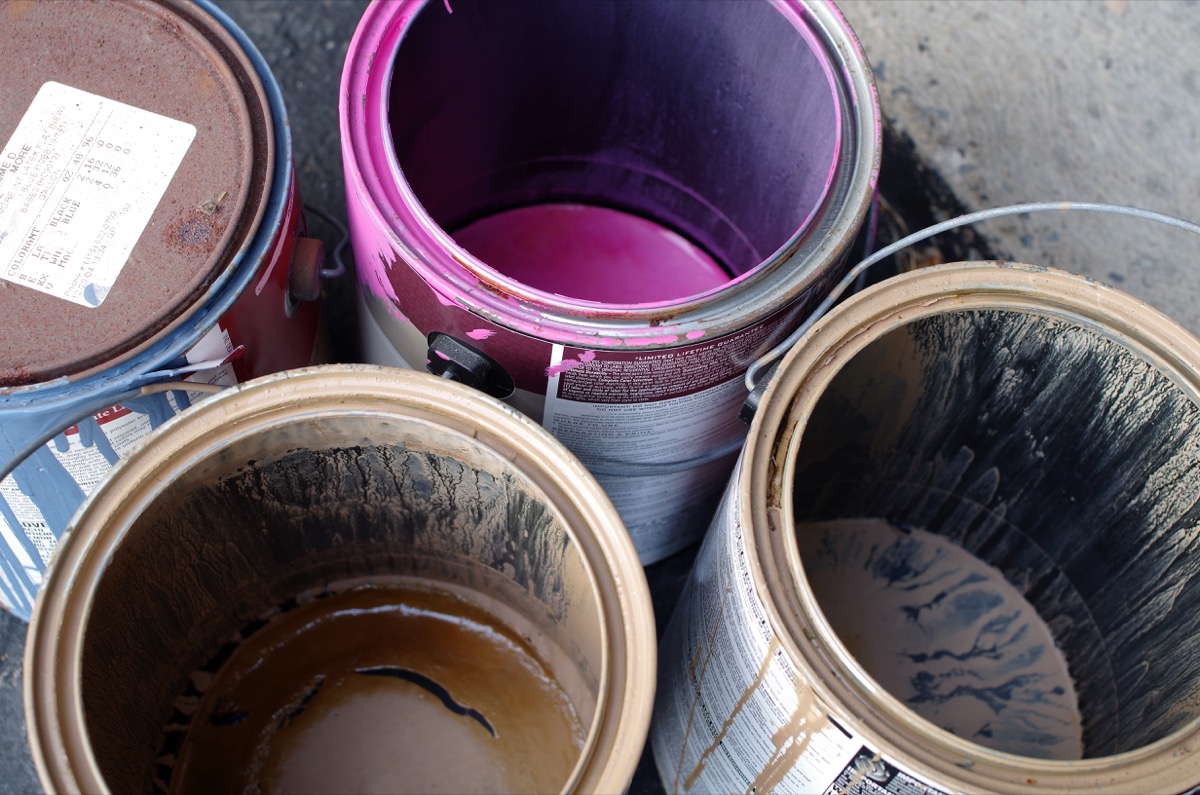
Choosing the right paint involves a lot more than picking a color. As Lou Manfredini, the official Ace Hardware home expert, explained to BankRate, the wrong paint—like a clear sealer that fails to block UV rays for an outdoor deck—can cause long-term problems for a home. "Sun and rain tear the heck out of the wood," he says.
4
Or ignoring flaking paint
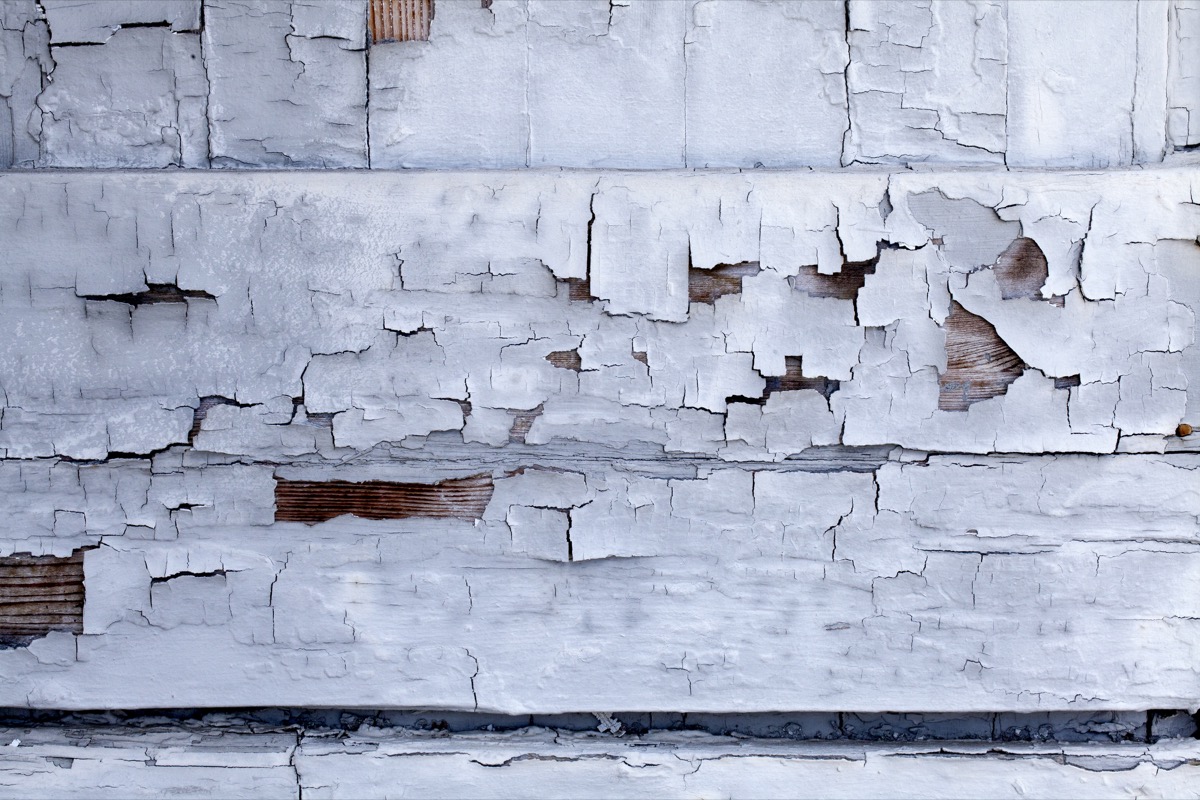
Those flaky spots on the façade of your home might seem like nothing more than an aesthetic problem, but if you ignore flaking paint for too long, you're going to have more serious issues on your hands.
"If paint is flaking, there are holes in your shield, and that's a problem. It lets in moisture that can rot the bones of your home. A little water turns into big trouble, fast," writes serial home remodeler Leanna Potts for House Logic. "The more water that seeps in through those cracks, the bigger the cracks get, letting in even more water."
5
Letting tree limbs grow over your home
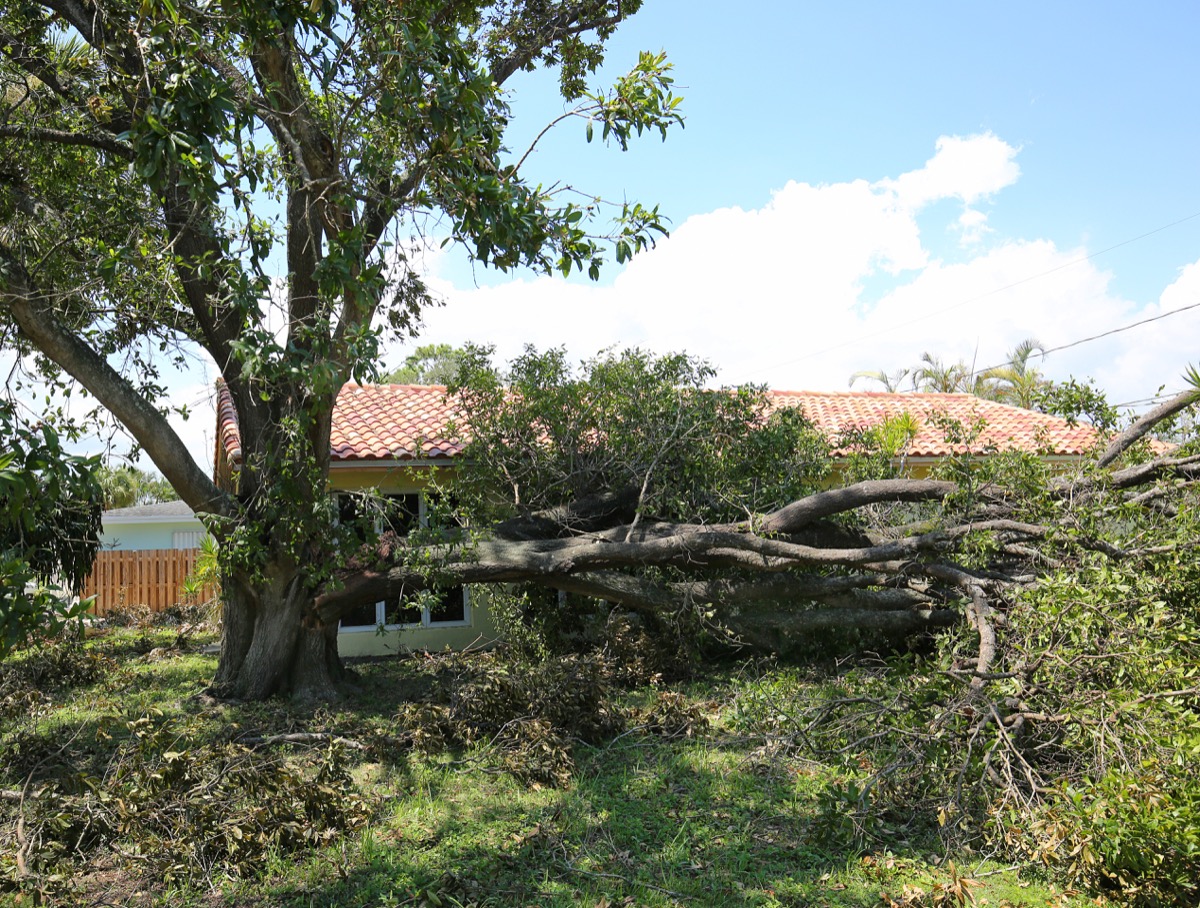
They might provide shade and look lush, but allowing thick tree limbs to hover over your home is only courting disaster. Not only can they break off in a storm, potentially putting a hole through your roof, but, according to Potts, "those limbs can be a highway into your home for pests like raccoons and squirrels, who might end up nesting in your attic or gnawing electrical wires." As a precaution, keep limbs trimmed at least six feet above the house.
6
Repairing your own roof
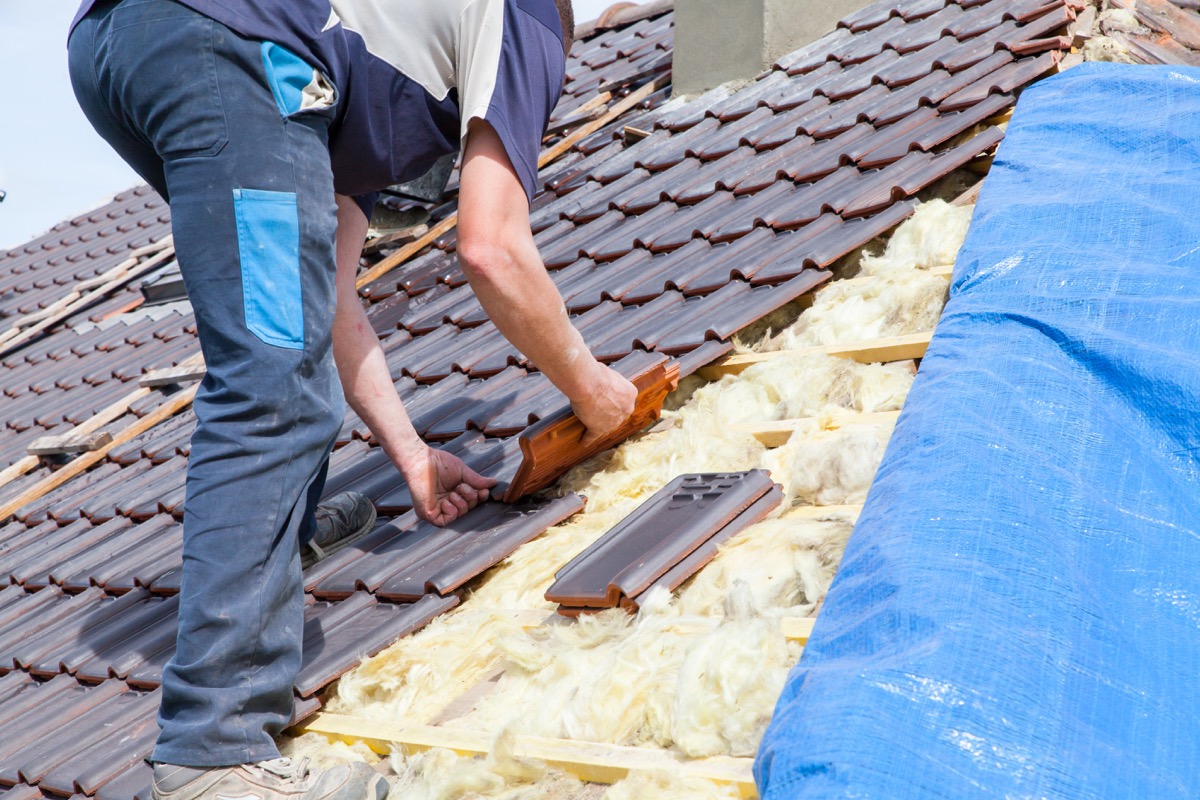
Fixing a roof yourself might seem like an easy way to save money—and fill up a few weekends—but, as any pro will tell you, it's not something for hobbyists. "Not only can you hurt yourself if you attempt to fix your roof on your own, but you can also damage your roof and end up in need of more costly repairs from a professional," says J.B. Sassano, president of Mr. Handyman, a commercial and residential repair, maintenance, and improvement franchise. "Limit your interaction with your roof to seasonal checkups."
7
Insulating your attic alone
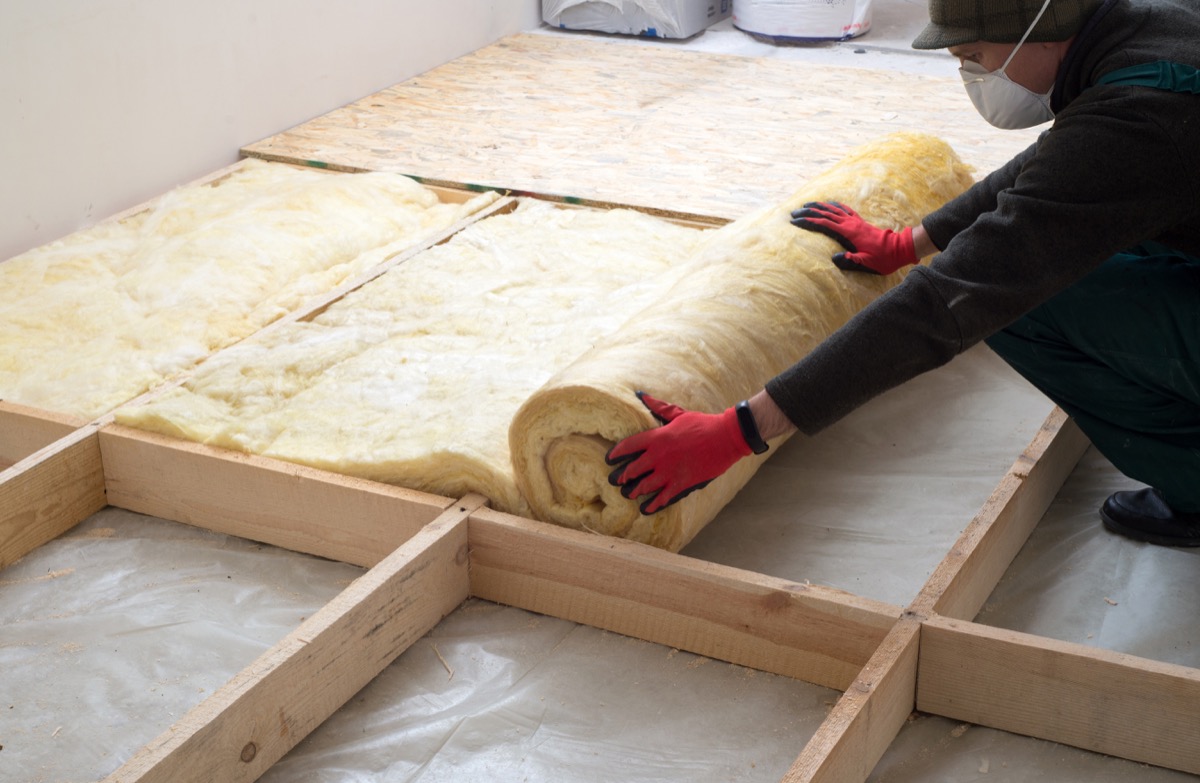
How hard can installing insulation be? Just slap a few sheets of foam up and you're done, right? Well, actually, not so fast… "Many people don't understand how much insulation to use throughout the attic," says Sassano. "Too much insulation in the wrong place can cause wood rot to form." And, what's worse is it'll probably be a few years before you even realize the error of your ways.
8
Or overlooking insulation entirely
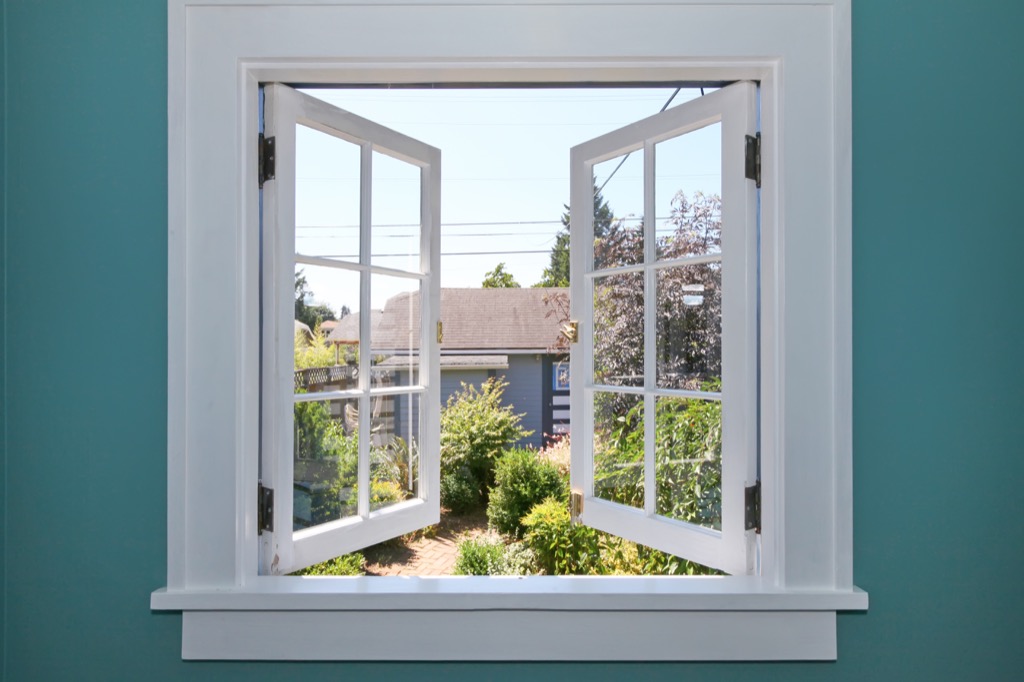
Failing to insulate your windows properly can mean the loss of significant heat (or air conditioned air, depending on the season). Not only does it make your home less energy efficient, but poor insulation can cause moisture to sneak in and all kinds of other problems.
"Without significant heat loss through leakage or convective airflow, insulated windows ensure an even temperature throughout the interior of the home, increasing energy efficiency," writes Andrew Aguecheek of How Stuff Works. "They also make it possible for heated homes to maintain a higher humidity level, and thus better air quality, with a reduced risk of condensation on the windows."
9
Putting literal bricks in your toilet
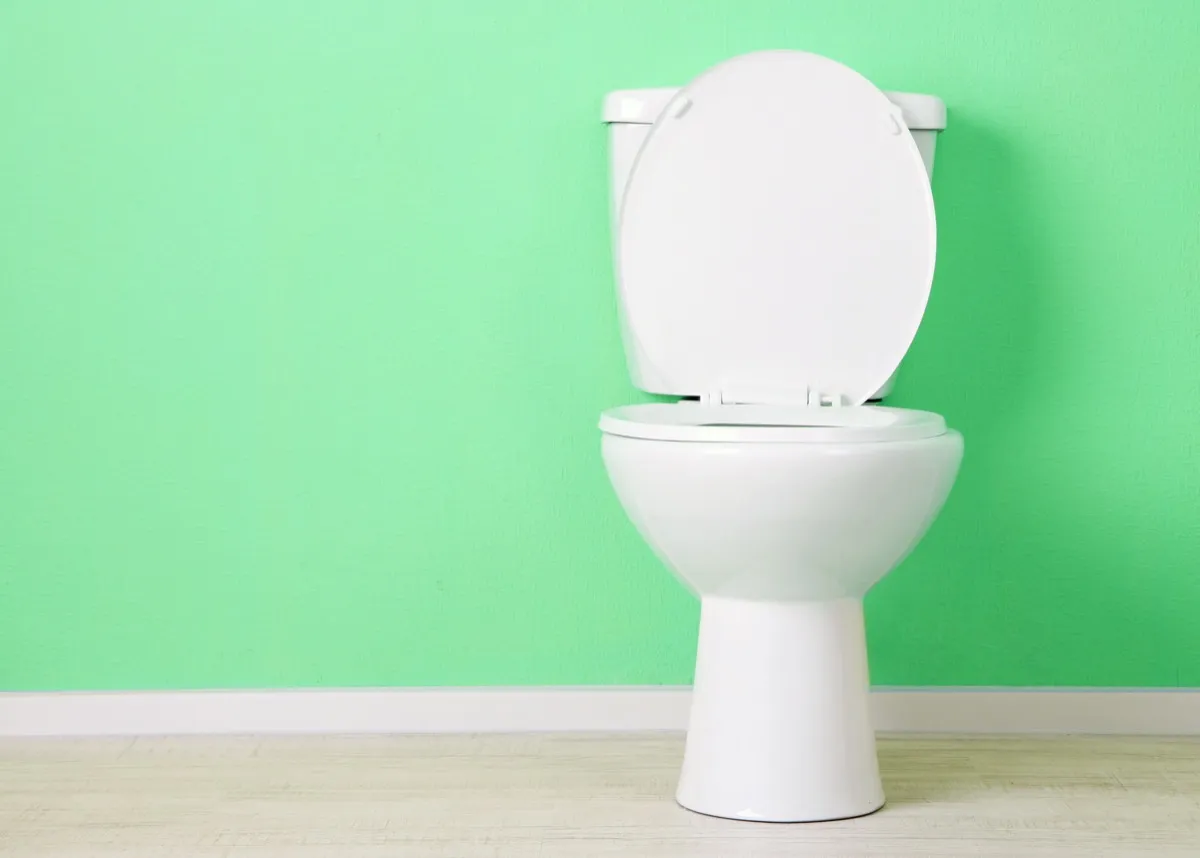
We know what you're trying to do by putting that heavy brick in the tank of your toilet: displacing water to help conserve resources. It's a noble goal, but, as home improvement expert Kelley Walters explains on House Logic, "Brick crumbles when exposed to water for too long."
Instead, she suggests switching to a high-efficiency toilet. "At $100 to $300 per toilet, the $230 annual water savings is worth it," Walters notes. "Or just swap your brick with a half-gallon milk jug filled with sand."
10
Placing appliances near the thermostat
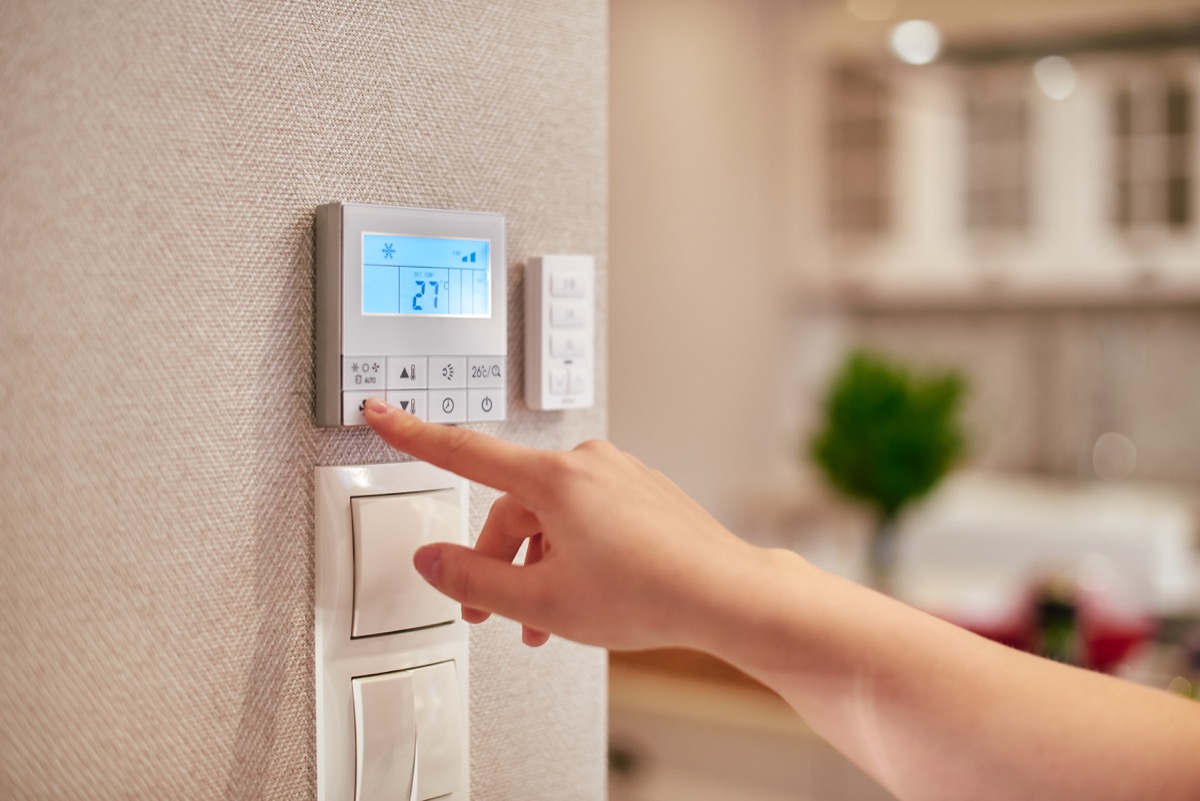
"Make sure that no lamps, TVs, or other heat-emitting appliances are too close to the thermostat," advises Mark Dawson, chief operating officer at Authority Brands, which owns home repair companies One Hour Heating & Air Conditioning and Mister Sparky. "Your thermostat can register the rise in temperature and respond accordingly, leading to higher bills in the summer—and a colder home in the winter."
11
Using adapters on two-prong outlets
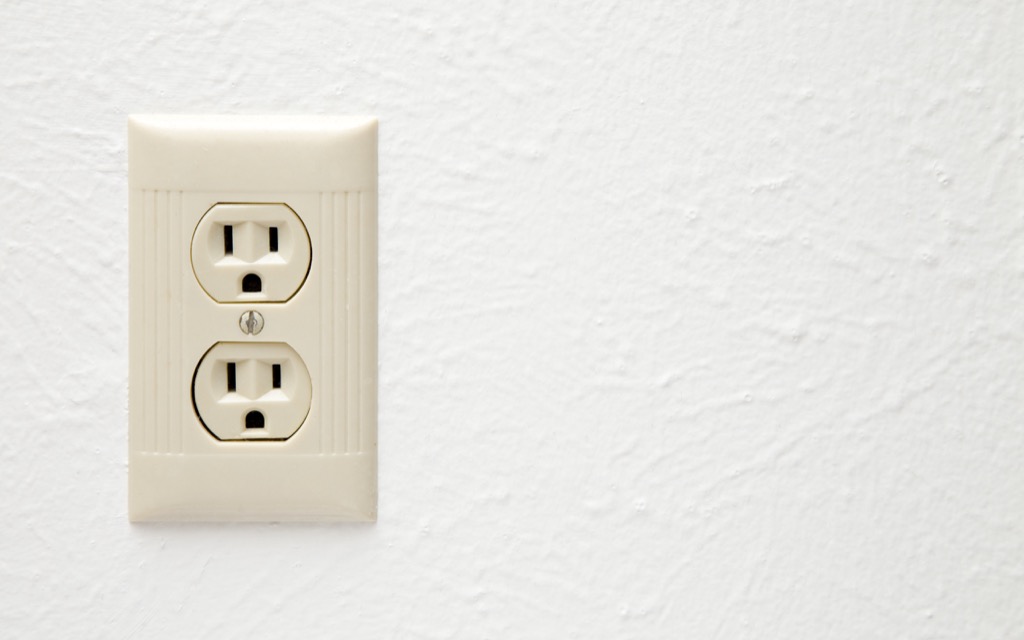
Three-prong outlets didn't become standard in North American homes until the late 1960s. So while modern homes should be in good shape, there are plenty of houses out there with old two-prong outlets. And homeowners who find themselves with the old-fashioned outlets shouldn't use adapters to convert them to fit three-prong plugs.
"The ground wire is there for safety, and simply bypassing it creates a potentially serious hazard," says Dawson. "Instead, you should consider upgrading the outlet if you need to regularly use three-prong plugs."
12
Using an indoor extension cord outdoors
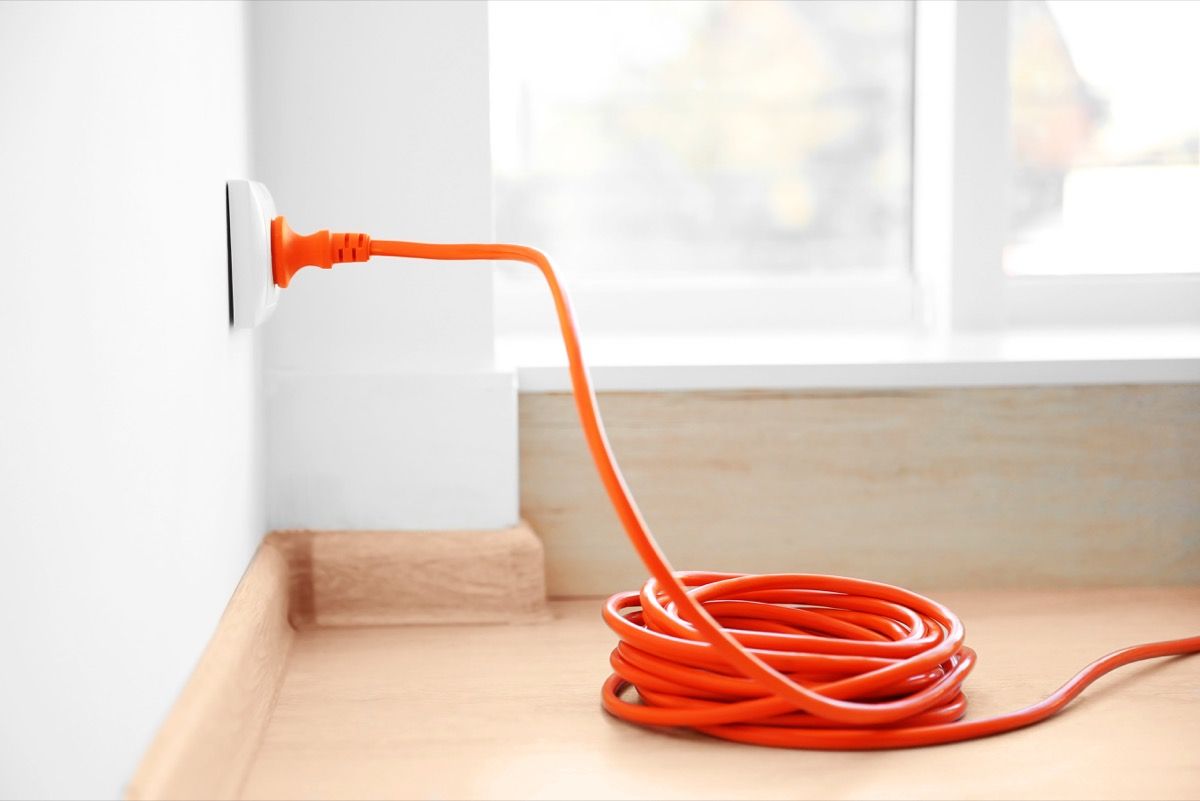
You probably figure any extension cord will do when you're trying to set up your outdoor speakers. But choosing the wrong one can create some big problems.
"If an extension cord is not rated for outdoor use, it's at risk of overheating and potentially causing a fire," says Dawson. "Outdoor use ratings are conspicuously noted on packaging for new extension cords, but they're often printed right on the cord jacket, designated by the letter 'W.' If you see the letter 'S' instead, you know that cord is rated for general use."
13
Forgetting about the foundation
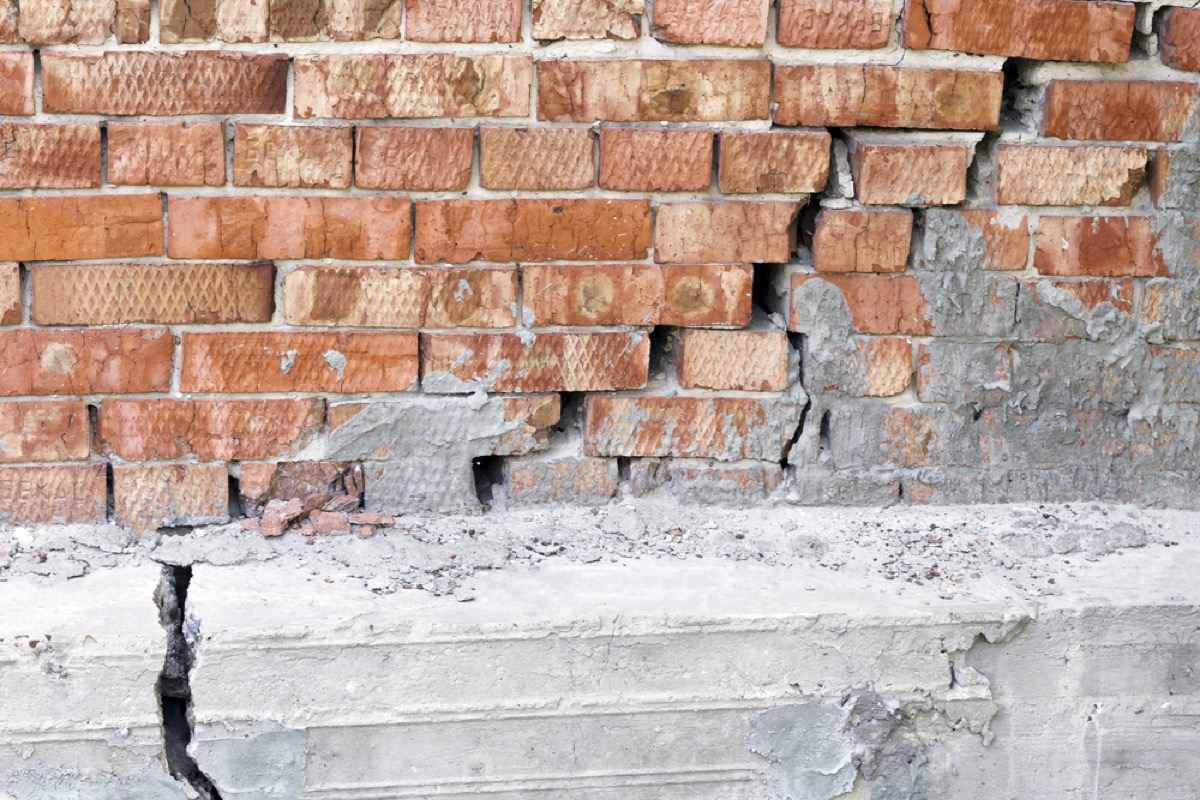
"Foundation issues typically arise due to heavy periods of rain or plumbing," says Chuck Naish, founder of City Residential Foundation Repair in Ontario, Canada. And avoiding or putting off repairing your foundation only allows more water to leak in, which can lead to mold.
As you know, not only does mold do damage to your home, it can also pose plenty of health risks to you and your family (like allergies, headaches, and dizziness in the short term, and memory loss, insomnia, anxiety, and depression in the long term).
14
Or forgetting to unblock your home's "arteries"
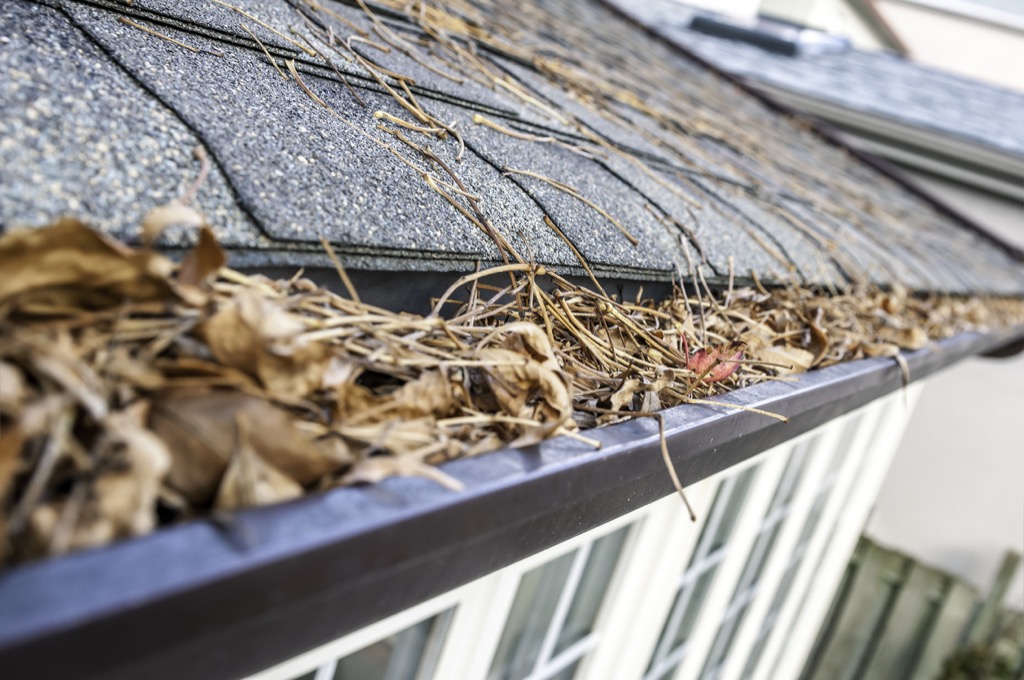
Your gutters and downspouts are essentially your home's circulatory system. In other words, they keep things unblocked and moving smoothly. Ron Humes of Post Modern Marketing, who previously worked as a builder and owner of a remodeling company, says that clogged gutters and downspouts can do more damage to your roof and foundation than one might imagine, especially when you add freezing temperatures, sleet, snow, and ice into the mix.
"The water backs up, freezes, and carries the frozen water upwards on your roof, doing damage to shingles, roof sheathing, soffits, and fascia," says Humes. "The excess weight makes the gutters sag, so they no longer drain the water as designed. The water spills over the sides of the gutters where it falls next to your foundation and causes flooding or settling in your basement, crawlspace, or slab."
So what can you do to prevent this kind of catastrophe? "After the leaves have fallen from the trees, make sure to clean out the gutters and ensure that the water exits the downspouts," Humes suggests.
15
Letting your driveway get decrepit
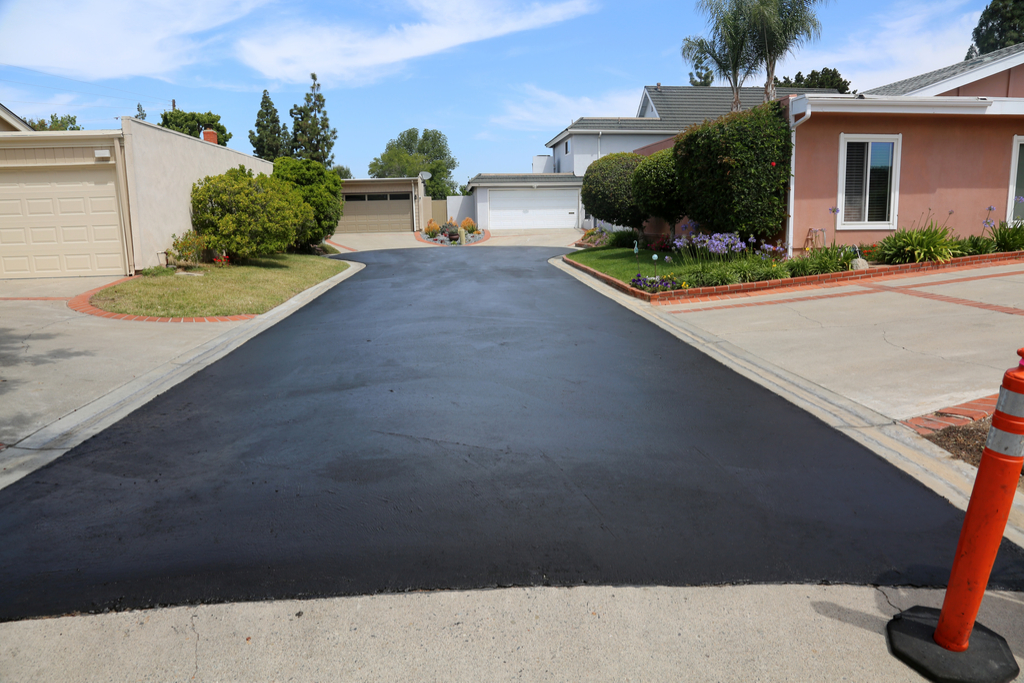
You drive over it at least a few times a day with a multi-thousand-pound metal behemoth—so yes, your driveway absolutely needs attention. "If you don't take care of your driveway, just like any other part of your house, it will cost you," says Michael Colacci, chief operating officer of H2Go Mobile Wash, a power-washing franchise in Canada. "For instance, if there's an oil or gasoline stain, clean it up right away, or else the concrete will absorb it and make it a lot more difficult to wash away. Also, try and avoid any de-icing chemicals when melting snow on your driveway during the winter. By doing so, you'll risk damaging the surface of your driveway. Instead, stick with rock salt or even sand."
16
Neglecting to tune up your HVAC
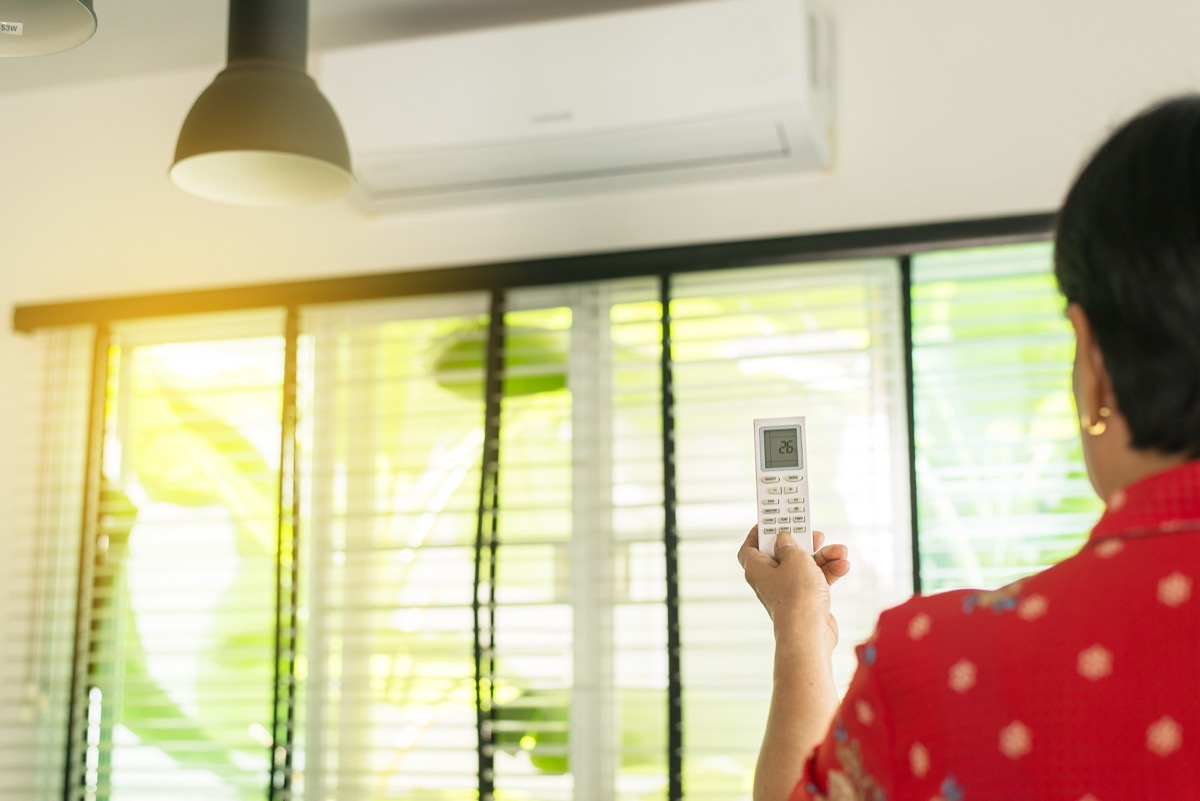
Those filters in your heating, ventilation, and air conditioning (HVAC) systems can get filthy over time. Not only does that cause them to work less effectively, but it can also damage other temperature-related systems in the home. So getting them checked out is worth your while.
"The money spent on an HVAC tune-up can be recovered with added efficiency and lower utility bills," says Humes. "In addition, the lack of maintenance on your HVAC system can also lead to a shutdown of the system or a complete premature failure, resulting in a need for replacement." Needless to say, that'll cost you!
17
Hiding your HVAC
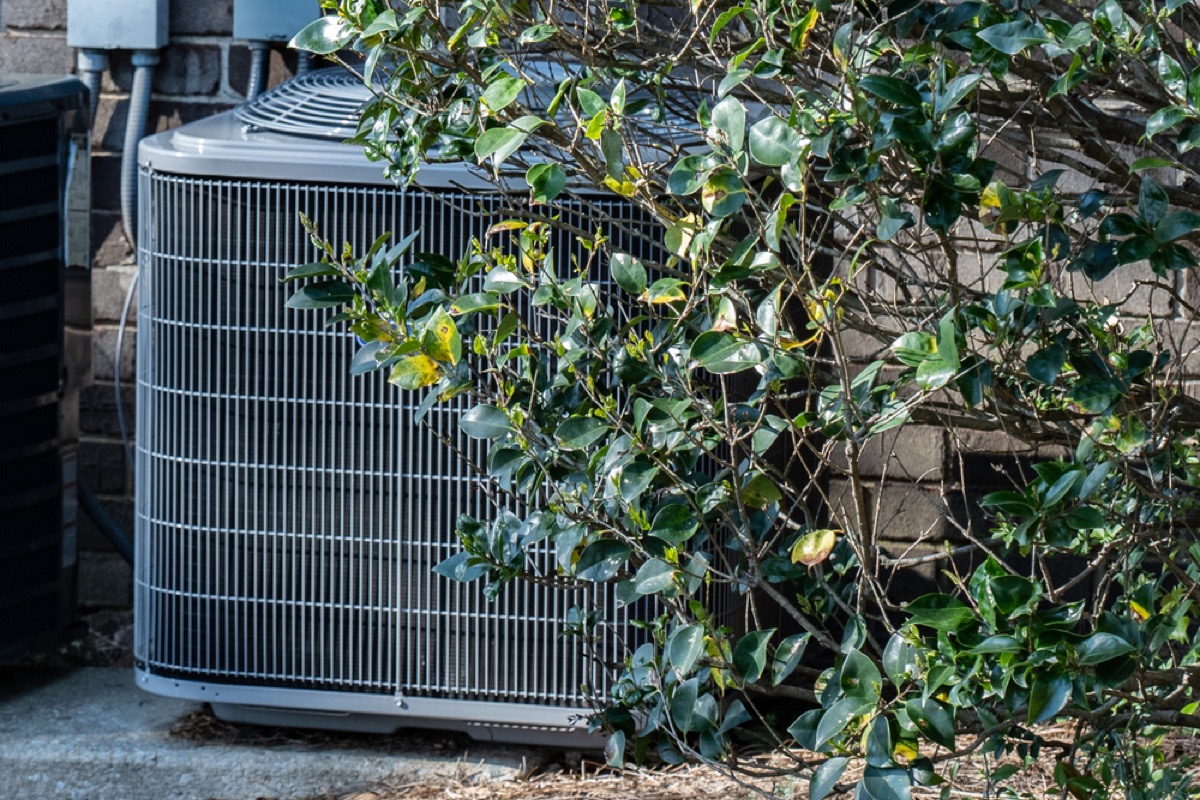
Something that can cause damage to your home—even as you try to make it more aesthetically pleasing—is when you try to camouflage your air conditioning system by hiding it behind shrubs or some other barrier. "The urge is understandable," says Dawson. "The unit probably isn't the most appealing element of your landscaping. However, surrounding it with plants or shrubs could block proper ventilation and clog the system. Always make sure there's plenty of open space."
18
Storing too much under the porch
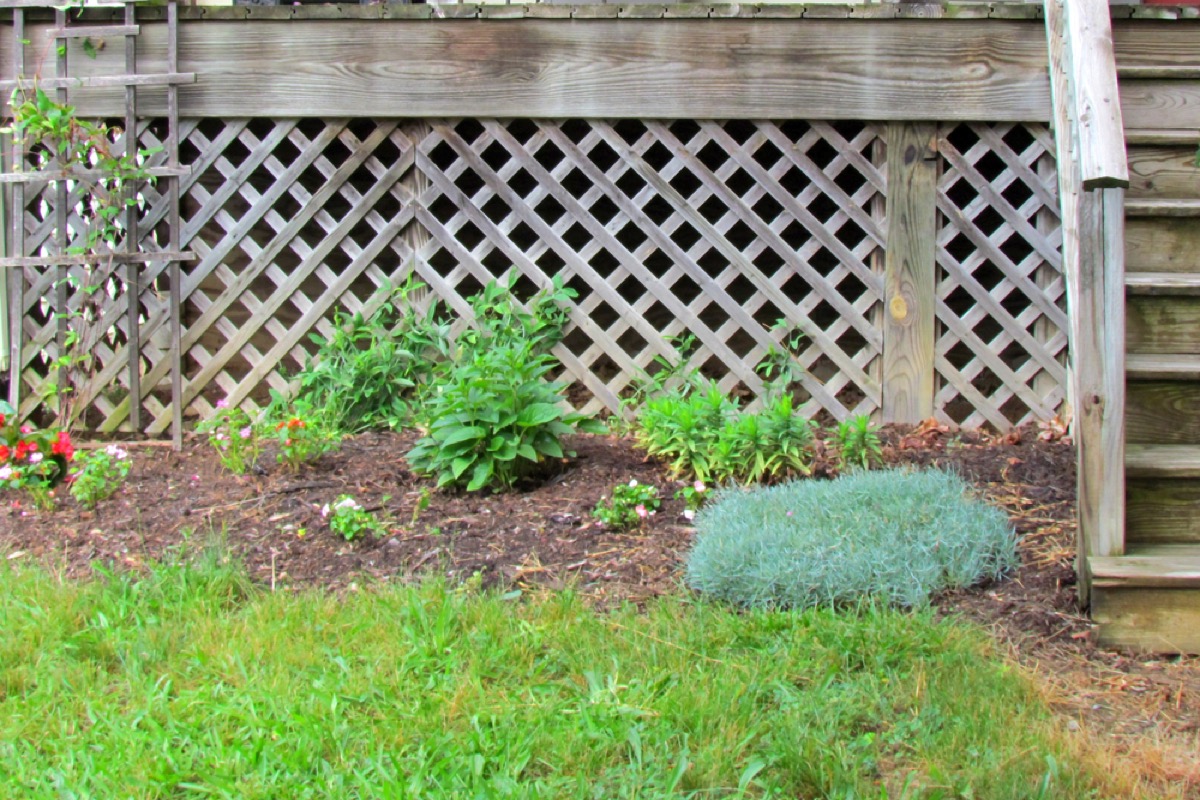
That area under your deck may seem ideal for stuffing, say, an extra bike, or a bulky kayak. But if you start packing in the supplies, leaving little room below your home, you can set yourself up for trouble.
"Packing in outdoor furniture, a ladder, the grill, and more during the off-season can hinder air circulation, trapping moisture and building up enough heat to warp the boards," writes Sal Vaglica for This Old House. Instead, try leaving at least 12 inches of open space beneath the joists to ensure air can move freely underneath.
19
Forgetting your flue
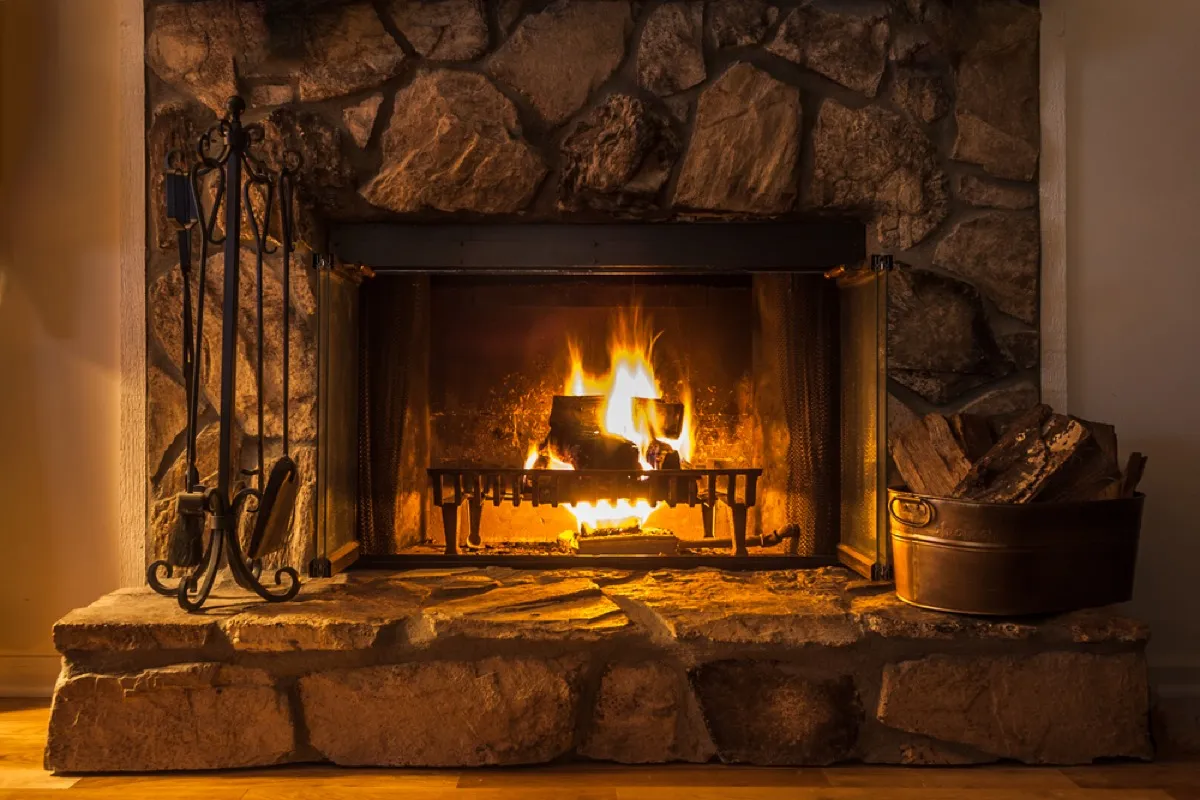
Who doesn't love to get cozy around the fireplace on chilly nights? But while chestnuts are roasting, there may be buildup happening in the flue, which is a common cause of house fires in the fall and winter. "I have personally had two friends who lost their homes to fires that originated in the fireplace," says Humes. "To be safe, contact a chimney sweep company to have them clean and inspect your fireplace before it's too late."
20
Storing firewood near your house
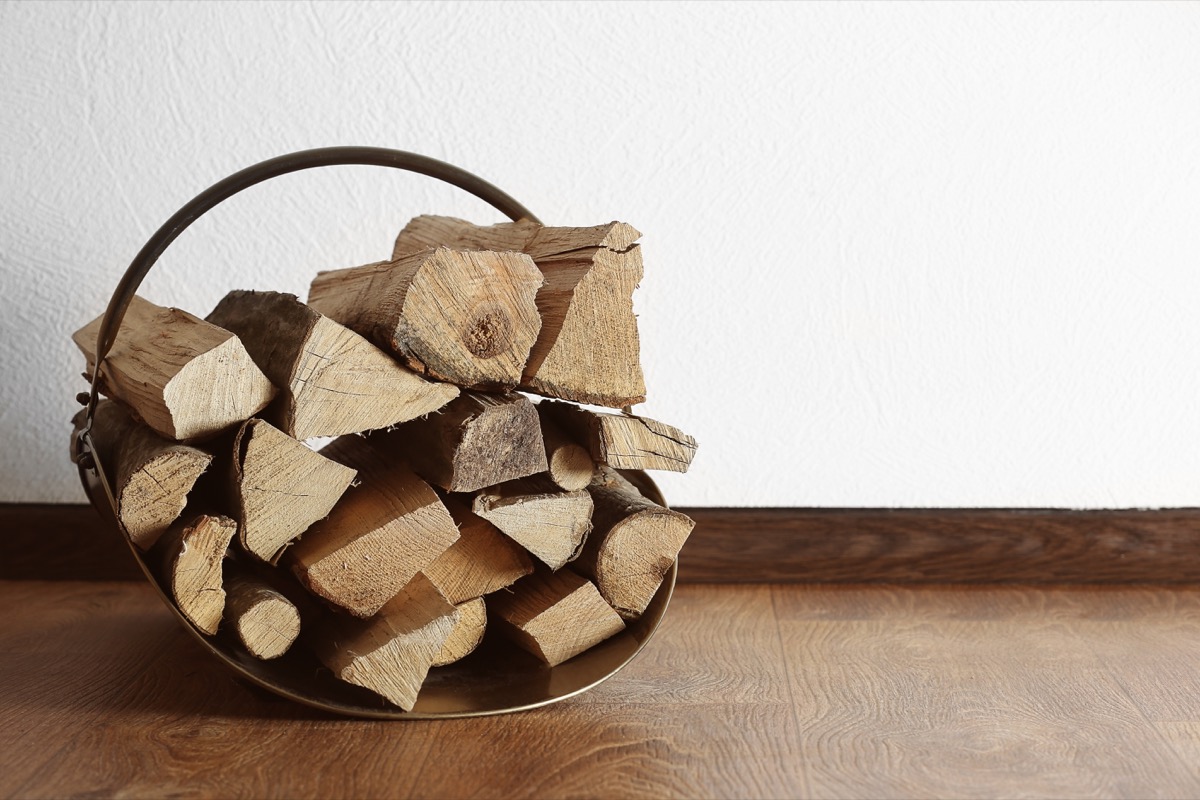
Maybe you're old fashioned and like to use actual firewood rather than an electrical or even gas fireplace. We get it, but be wise about where you store your firewood. As Edge explains, that woodpile can become "a cozy winter home to … unwelcome critters like mice, termites, and cockroaches." Not to mention, it's also a fire risk.
21
Slamming doors
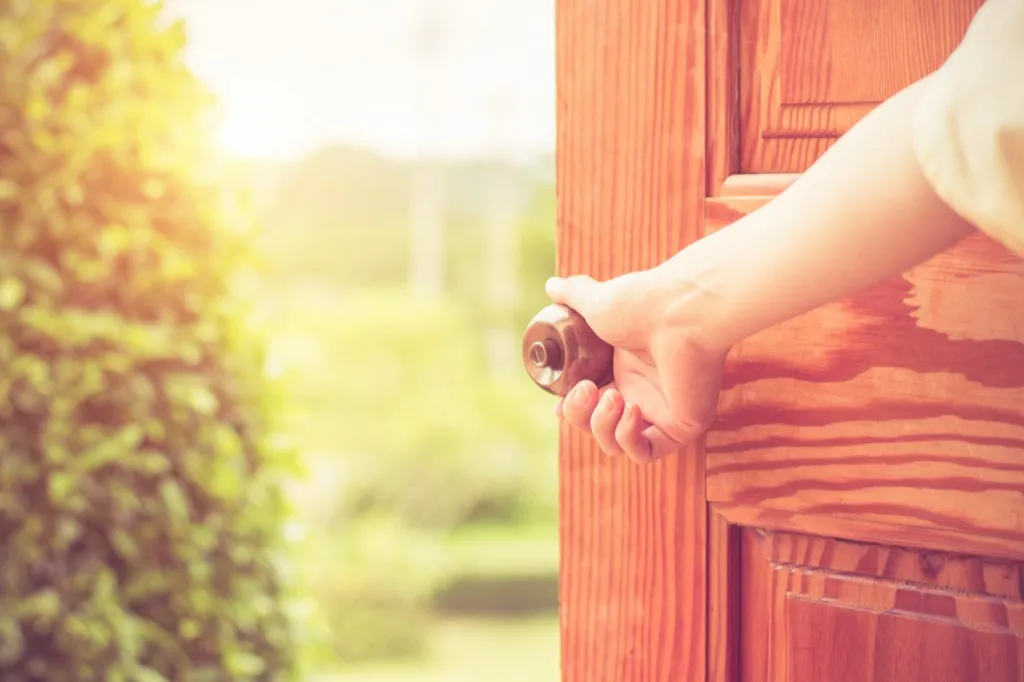
Beyond the unpleasant noise doing so creates, slamming doors can damage your home, as well. "Repeatedly slamming a hefty entry door pushes its jamb out of alignment," writes Vaglicia. "Over time, the momentum can force the door from the opening, causing the seam where the trim meets the jamb to separate, leaving an exterior gap where moisture and cold air can infiltrate." And for more sage home care advice, try these 33 Super Effective Old-School Cleaning Tricks.
To discover more amazing secrets about living your best life, click here to follow us on Instagram!

